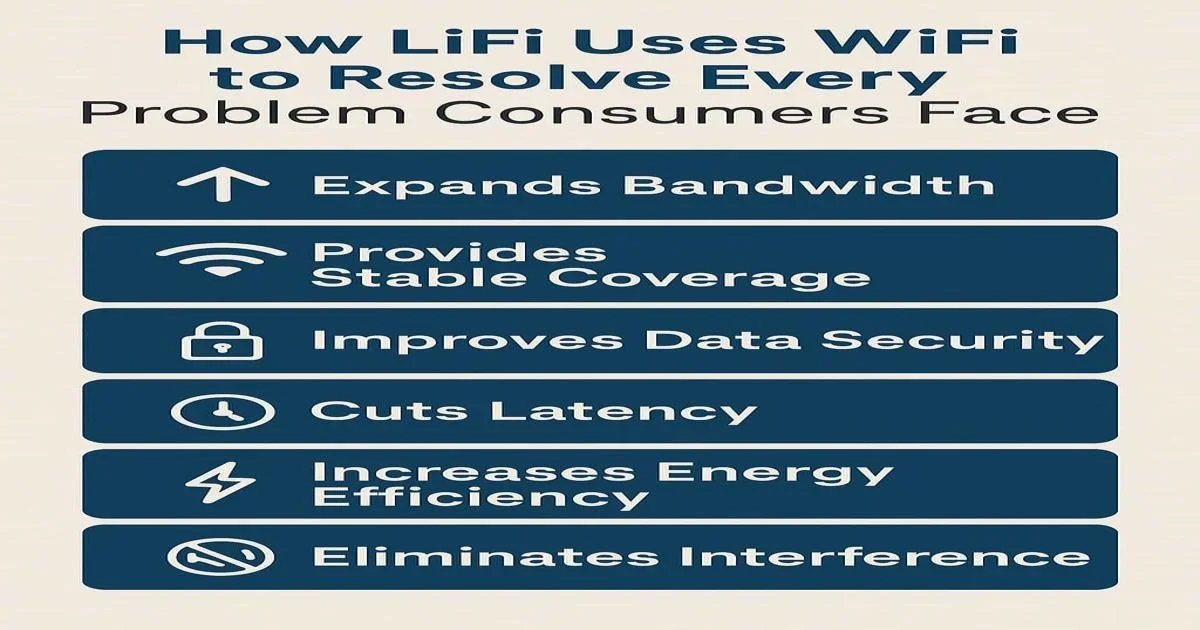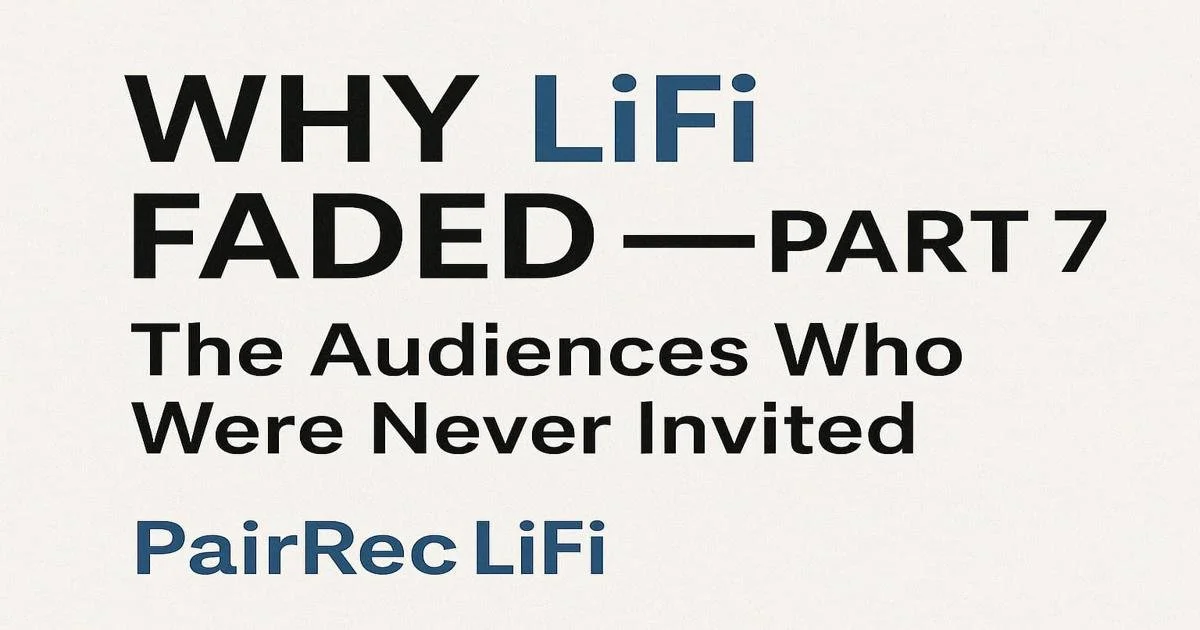WiFi vs LiFi: Why Today’s Internet Still Fails to Deliver the Connection We Deserve
WiFi has powered our world for decades, but it’s showing its age. Slow speeds, dropped connections, and mounting security concerns expose the limits of radio-based networking. It’s time for a smarter, faster, and more sustainable alternative.
PairRec LiFi turns light itself into connectivity—seamless, secure, and energy-efficient. Within PairRec SmartZones, illumination and internet merge into one intelligent ecosystem powered by innovation, automation, and solar energy. The future of connectivity doesn’t just glow—it shines.
Why LiFi Faded - Part 7
Despite its transformative promise, LiFi never reached some of the world’s most vulnerable communities. Entire groups—people with disabilities, rural populations, those without electricity or internet—were sidelined by a technology that claimed to be the future of global connectivity. Libraries, schools, and untargeted users remained untouched by a vision that lacked inclusivity.
Part 7 of the Why LiFi Faded series exposes these critical gaps in audience targeting and explores how PairRec is confronting them head-on. From solar-powered Smart Zones to accessible design principles, PairRec is making LiFi work for everyone—not just the tech elite. It’s time to turn the lights on for those left in the dark.
Can LiFi be used when internet networks go down?
LiFi, or Light Fidelity, is emerging as a game-changing technology for maintaining connectivity during internet outages. Unlike WiFi, which relies on radio frequencies, LiFi uses light waves to transmit data, offering unique advantages such as immunity to RF interference and enhanced security. During a network outage, LiFi can function for localized communication as long as it is connected to a local server or backup network, making it an excellent tool for homes, businesses, and critical infrastructure. However, it does require a functioning light source and line-of-sight, which can present challenges in certain environments.
As traditional networks struggle with increased demand and unexpected disruptions, LiFi provides a reliable alternative for specific scenarios, such as disaster recovery, emergency response, and smart home setups. Its ability to operate independently of RF-based systems makes it especially valuable in secure environments and areas prone to network failures. While LiFi may not replace WiFi entirely, it serves as a robust complement, ensuring continuous connectivity in situations where traditional networks fall short. For those seeking innovative and resilient solutions to internet outages, LiFi offers a glimpse into the future of localized, secure communication.



